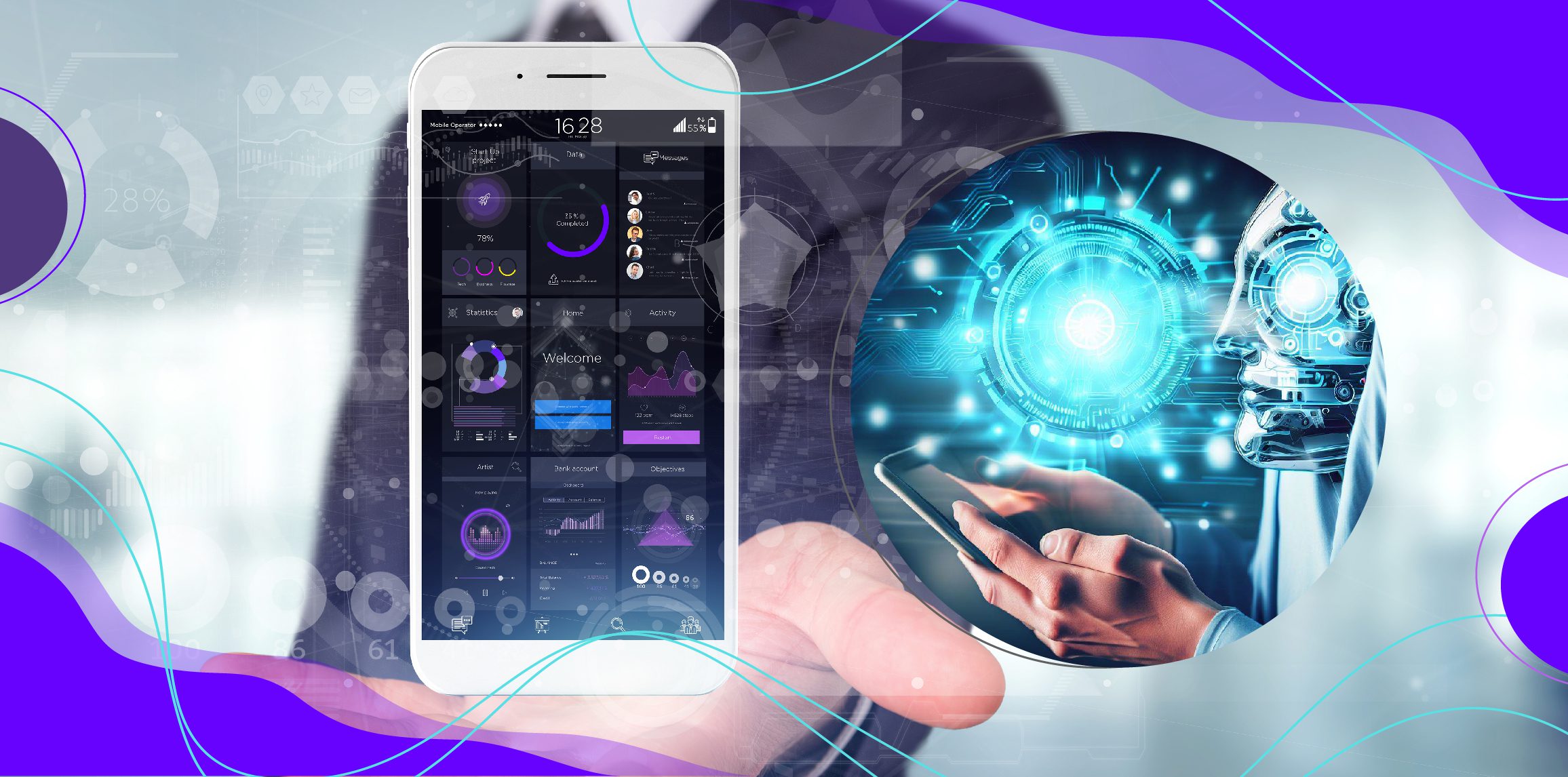August 14th, 2023
Category: Artificial Intelligence,software development
No Comments
Posted by: Team TA

Artificial Intelligence (AI) has emerged as a prominent technology in mobile development, revolutionizing how we interact with our smartphones and transforming various industries. AI in app development has made mobile applications smarter, user-friendly, and capable of providing users with unique experiences. Allied Market Research estimates that by 2030, the global mobile artificial intelligence (AI) market will reach $84.80 billion. Furthermore, major tech giants like Apple, Google, and Samsung have been incorporating AI-driven features into their mobile operating systems, enhancing functionalities such as voice assistants, image recognition, and predictive analysis.
Artificial Intelligence in Mobile Apps
Artificial Intelligence in conjunction with Machine Learning and Natural Language Processing (NLP), has significantly elevated the intelligence and interactivity of mobile applications. Through ML algorithms, AI enables mobile apps to learn from user behavior, adapt to individual preferences, and deliver personalized experiences. For example, AI-powered virtual assistants like Apple’s Siri or Google Assistant utilize NLP techniques to understand and respond to user commands, perform tasks, and provide relevant information. These assistants continuously improve their understanding of natural language, enabling more accurate and context-aware interactions.
Benefits of AI in App Development
1. Recommendation Services
AI in mobile app development enhances user experience by personalizing recommendations based on individual preferences and behaviors, leading to increased engagement and satisfaction. For example, Netflix’s recommendation system based on AI algorithms has significantly increased user retention and viewing time.
2. Simple and Efficient Hands-Free Operation
Voice assistants powered by AI, such as Siri or Google Assistant, enable hands-free control of mobile devices, making tasks like setting reminders, sending messages, or getting directions more convenient and efficient.
3. Improved App Authentication
AI has a significant impact on user authentication and app security. AI algorithms in mobile apps can analyze user data to detect patterns and provide valuable insights, enabling businesses to make data-driven decisions and optimize their strategies. The app can stay informed about irregularities and anomalies in user behavior using AI integration on mobile devices. For instance, Mobile banking apps utilize AI algorithms to detect fraudulent activities and protect user accounts.
4. Instant and Improved Customer Support
AI-driven chatbots in customer service apps provide instant and round-the-clock support, improving response times and reducing the workload on human agents. Many airlines now use AI chatbots to handle customer queries, resulting in faster resolution times and improved customer satisfaction.
5. Enhanced Data Analysis and Processing
AI in mobile apps facilitates efficient data processing and analysis, enabling faster and more accurate decision-making in various fields such as finance, logistics, and inventory management. Mobile apps like QuickBooks or SAP Concur leverage AI to automate financial processes and streamline expense management. Also, AI-powered health and fitness apps use data analysis and machine learning to track and provide personalized insights on physical activities, sleep patterns, and nutrition, promoting healthier lifestyles.
Major Applications of AI in App Development
1. Image Recognition
AI algorithms enable mobile apps to analyze and interpret images captured by the camera. This technology finds applications in various areas, such as augmented reality, visual search, and object recognition.
Google Lens uses AI-powered image recognition to identify objects, landmarks, and products, providing users with relevant information and search results.
2. Voice Assistants and Language Translation
AI-powered voice assistants like Siri, Google Assistant, and Amazon Alexa have become popular in mobile apps. These virtual assistants can perform tasks, answer questions, and provide personalized recommendations. According to a report by Statista, the global voice recognition market is projected to reach $26.79 billion by 2025. Apple’s Siri can set reminders, send messages, make calls, and provide information based on natural language voice commands.
AI-powered language translation apps enable real-time translation between different languages, facilitating global communication and breaking language barriers. For example, Google Translate utilizes AI and NLP to provide accurate translations between multiple languages, both in written and spoken form.
3. Chatbots
AI-driven chatbots offer automated and interactive conversations within mobile apps, providing instant customer support, answering queries, and assisting users. The chatbot in the Facebook Messenger app allows businesses to provide quick responses to customer inquiries, improving customer service efficiency.
4. Personalized Recommendation
AI/ML development is widely applied in mobiles to deliver personalized recommendations tailored to individual user preferences and behaviors. By leveraging AI algorithms and data analysis techniques, mobile apps can analyze vast amounts of user data to understand their interests and offer content, products, or services that are highly relevant to them. For instance, e-commerce giant Amazon uses AI algorithms to provide personalized product recommendations based on user browsing and purchase history, resulting in a substantial boost in sales. Also, Spotify utilizes AI to create personalized music recommendations for its users. The app analyzes listening habits, user-generated playlists, and data from millions of other users to suggest songs, artists, and playlists that align with individual preferences.
5. Health and Fitness Monitoring
Mobile apps equipped with AI capabilities can collect and analyze user data related to physical activities, sleep patterns, nutrition, and vital signs to get valuable insights into users’ health and fitness status. Based on individual user data, these apps can offer personalized workout routines, nutrition plans, and lifestyle adjustments. By monitoring health data patterns and historical information, they can also provide early warnings or suggestions for preventive measures. They can also track user behaviors, such as exercise consistency, sleep patterns, or nutrition habits, and provide insights to promote healthy habits. Through reminders, goal tracking, and habit-forming techniques, AI helps users stay accountable and make positive lifestyle changes.
Futureproof with AI-Driven Mobile Apps
As AI continues to reshape the landscape of mobile app development, its significance is undeniable, driving innovation and delivering powerful user experiences. In a rapidly changing technological landscape, developers can stay ahead by building powerful, secure, and user-centric AI-driven apps that remain relevant and impactful to users.
With the assistance of skilled developers from a trusted technology partner like us, you can seamlessly integrate AI into your mobile apps, making them intelligent and highly capable.